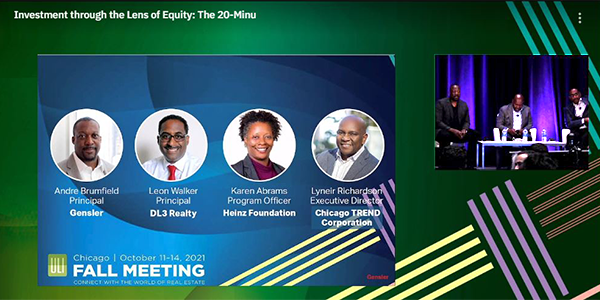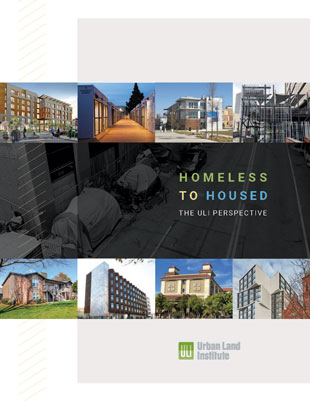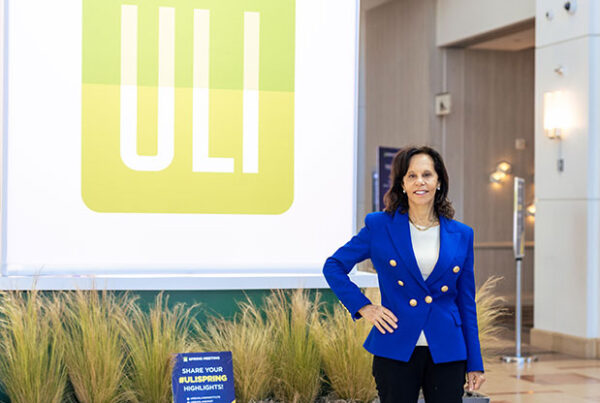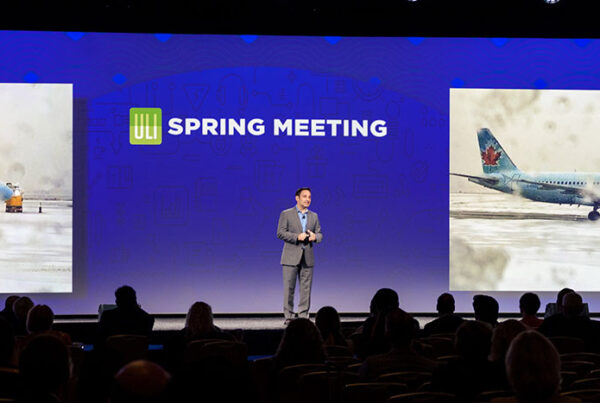Successful development of 20-minute communities in Black and brown neighborhoods requires community involvement and ownership, according to panelists who explored the topic at ULI’s 2021 Fall Meeting.
The idea of 20-minute communities—pedestrian-friendly places where homes, shopping, and jobs are within a 20-minute walk—“rings hollow” in many such neighborhoods “because these amenities don’t exist there,” said Andre Brumfield, global director for planning and urban design at Gensler, who moderated the October 13 panel, “Investment through the Lens of Equity: The 20-Minute Neighborhood in Underserved Communities.”
Brumfield listed keys to equity in such development: a renewed focus on neighborhood retail, neighborhood-focused employment centers, high-speed internet as a public utility, a focus on workforce and affordable housing, access to health care and wellness, access to micro-mobility and public transportation, repopulating Black neighborhoods, and respecting and preserving culture. “It goes beyond design,” he said, and calls for understanding community needs and “keeping the people who are there, there,” rather than forcing them out.
Brumfield’s list of issues can be seen as a list of stakeholders, said panelist Leon Walker, managing partner of Chicago developer DL3 Realty. It is the developer’s job, he said, to coordinate those stakeholder interests into a workable property. His firm’s projects on the city’s South Side have included transforming a vacant retail big box into a call center that brought neighborhood jobs and building a shopping center that brought a Whole Foods into a food desert. Prior to the protests following the murder of George Floyd in 2020, equity often meant fairness, he said, such as making sure that construction included minority contractors. Now, though, equity means focusing on ownership and wealth-building, he said.
“I think of equity as access—straight access,” said Karen Abrams, a program officer with the Heinz Foundation, who joined the panel remotely. The word equity, she said, has been watered down to mean nothing. “I challenge you to use ‘racial equity’ in your slides,” she said to Brumfield.
Equity is not just fairness, “but equity in finance,” said panelist Lyneir Richardson, CEO of Chicago TREND Corp., which raises capital from impact investors to promote ownership by people of color. Pointing to Brumfield’s list, he said, “In each of those areas, there’s a business opportunity. . . . If we think from inception about it being inclusive, it makes the deal better.”



